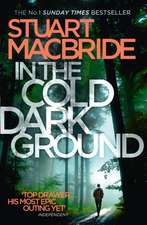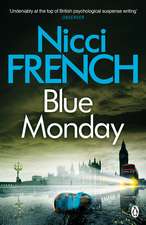Yellow: Big Action Science Fiction Book
Autor Peter Webb, Webb And Mournfrat Peter Webb and Mournfratt's Second Shadoen Limba Engleză Paperback
Preț: 111.58 lei
Nou
21.35€ • 23.26$ • 17.99£
Carte disponibilă
Livrare economică 02-16 aprilie
Specificații
ISBN-10: 1412026261
Pagini: 188
Dimensiuni: 178 x 254 x 10 mm
Greutate: 0.34 kg
Editura: Troubador Publishing
Seria Big Action Science Fiction Book
Notă biografică
That I write fiction, and some of it is science, may in part be due to an event that was to change the course of my life just as I was born.
You see, the bomb sent for our hospital, in one of the March 1941 blitz-raids on London, missed, and instead demolished the building across the road with a direct hit.
I realised that this was no place for my young mother, and by May had said goodbye to the traumas of London Town. We boarded the S.S. Burma at Liverpool, and, as part of the huge convoy OB 318 D, headed out across the Atlantic for Canada, America, and then on to South Africa. Our troubles weren't over though. By the time we reached a point just south of Iceland, the enemy discovered we had escaped, and sent U -110 on a mission to sink us.
With lifejackets on for three days and nights, we waited on deck whilst the Royal Navy did all they could to protect us. Eventually the enemy's periscope trained its beady eye on the Burma, and dispatched a torpedo. The fiendish machine scraped under our keel and, leaving a trail of bubbles, headed out into the North Atlantic. A few hundred yards to our starboard, the U-boat submerged as the depth-charges rained down around it.
We had escaped annihilation again!
Fortunately the Navy soon captured the enemy sub, where on board they discovered the first Enigma de-coding machine that helped put an end to the war.
And so, two and a half months into my new-found life, and with incredible co-incidences and lucky escapes already 'under my belt, ' as they say - I was still alive.
Six weeks later, and no stranger to adventure, Mother and I arrived safely in Simonstown, South Africa, where we were greeted by father, an RAF Squadron Leader.
The RAF had posted him there following a terrifying total destruction crash in a Beaufighter he had been piloting over England the year before.
After the war, we were home again, and father now returned to civilian life, who with his partner bought two hundred and ten Tiger Moth bi-planes from the RAF, in an auction. They all flew to Croydon airport where they were duly re-sprayed and put on the civil register.
During my school holidays father and I went on delivery flights to France, Germany, Luxembourg and Switzerland. But for me there was more to it than adventure; the strange thing was, that I found that if I wanted to go on a trip, I would only have to think it, and it would happen. And so it was with many things. For example - I thought that I could learn a lot from a set of encyclopaedias. It wasn't even my birthday, but a salesman knocked at the door, and there were my new books!
In my twenties I explored Australia, solo. Then after a spell working in Tasmania, returned to hitch-hike around South Africa, and as it was then, Rhodesia.
I was north of Bulawayo and on may way to the Victoria Falls as the sun was setting, and I was left to find my way at night walking through lion country. I was prepared to face the lions; I reasoned, if I haven't harmed them, then if I don't show fear, they won't harm me. But I didn't think it would come to meeting lions at night, and I didn't.
There was that ability again: as I thought - then so it would be.
By the late sixties I was back in Cape Town living in a house on the side of Table Mountain with a wonderful view over the city and Table Bay. My natural interest in science fiction and astronomy meant that I could do with some novels to read. Somebody gave me a tea-chest full of science fiction books, and a typewriter, and I was set. H.G.Wells took my fancy immediately, followed by Asimov and Arthur C. Clark.
I just wrote for myself, anything from a few lines to short stories, fantasy and fiction, with a little poetry, but with no thought of being published. But another strange event ricocheted me into a new line of investigation. I was sitting at my typewriter when I knew my grandfather 6,000 miles away in England had died. This was confirmed a few days






